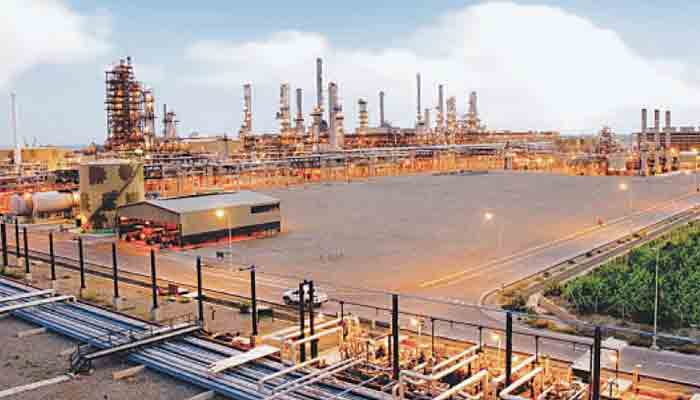Refineries expansion plans hit snags on policy delay
Analysts say refining policy is the need of the hour to help the government achieve its strategic objectives
KARACHI: Oil refineries are experiencing setbacks in their expansion plans as investors have long been waiting for the government to sign off the much delayed new policy governing the sector, industry officials said on Monday.
Refineries expect to attract $10 billion in investment and plan to invest $4 billion in upgrading existing capacities once the government approves the policy,” an industry official told The News.
“However, there has been no progress in the last two months on the said policy and it seems that upgrades and new investment in the sector were no more a priority for the government.”
Analysts said refining Policy was the need of the hour to help the government achieve its strategic objectives, including compliance with environmental protocols. The policy proposes to make it mandatory for refineries to upgrade and produce minimum EURO V standard fuels. At the same time it incentives have been given for investment in mega refinery projects, which could run into billions of dollars.
Refineries operating in Pakistan are basic refineries or in technical language ‘topping or simple hydro-skimming’ refineries, which need upgrade to produce environment-friendly fuels of EURO V standard. Local refineries produce 70 percent of the country’s diesel and 30 percent of the petrol. Since refining projects are capital intensive, there is a need for investment-friendly policies, sources said.
Tariq Kirmani, chairman Board of Directors of Pakistan Refinery Limited (PRL) said PRL and other refineries were vital to the oil supply chain of Pakistan, and the country could not afford closure of any of the existing refineries.
He also unambiguously opined that PRL is important for Pakistan State Oil, which being the largest OMC, has acquired PRL with the sole intent of backward integration to have uninterrupted supplies from a refinery, rather than relying on imports only.
“The expansion and upgradation plan of PRL will not only play a significant part in providing security of product supplies in Pakistan, but also play a major role in supporting the industrialisation planned in the second phase of CPEC (China-Pakistan Economic Corridor) projects,” Kirmani added.
Industry officials said refineries were wrongly accused of misusing ‘deemed duty’ by certain quarters without understanding the relevant policy directives. In short, refineries were initially allowed to include customs duty (deemed duty) in the ex-refinery pricing of HSD and three other products, but later restricted to ex-refinery price of HSD only.
Moreover, full amount of deemed duty collected was never instructed to be retained by refineries, rather any left-over profits were to be transferred to a ‘special reserve’, which could also be used for upgradation of refineries.
Sources said that upheaval in international oil prices in the last decade or so have greatly strained the refining margins, putting hydro-skimming refineries in a precarious position.
In the last 20 years, the refineries have suffered a cumulative loss of over Rs60 billion. Due to extremely high capital requirement, tight margins and lack of growth opportunities, there has been minimal new investment in the sector during the last 50 years.
Only Parco (60 percent government shareholding) and Byco (pre-owned) were installed. Due to lack of furnace oil demand, the refineries only operating at 60-65 percent of their capacity, and recently were forced to shut down due to no HSFO uplifting.
Sources pointed out that work on proposed refining policy with the input from refineries and other stakeholders started in early 2020, but unfortunately approval continued to get delayed due to frequent changes in the Petroleum Ministry.
-
 Melissa Jon Hart Explains Rare Reason Behind Not Revisting Old Roles
Melissa Jon Hart Explains Rare Reason Behind Not Revisting Old Roles -
 Meghan Markle Eyeing On ‘Queen’ As Ultimate Goal
Meghan Markle Eyeing On ‘Queen’ As Ultimate Goal -
 Japan Elects Takaichi As First Woman Prime Minister After Sweeping Vote
Japan Elects Takaichi As First Woman Prime Minister After Sweeping Vote -
 Kate Middleton Insists She Would Never Undermine Queen Camilla
Kate Middleton Insists She Would Never Undermine Queen Camilla -
 King Charles 'terrified' Andrew's Scandal Will End His Reign
King Charles 'terrified' Andrew's Scandal Will End His Reign -
 Winter Olympics 2026: Lindsey Vonn’s Olympic Comeback Ends In Devastating Downhill Crash
Winter Olympics 2026: Lindsey Vonn’s Olympic Comeback Ends In Devastating Downhill Crash -
 Adrien Brody Opens Up About His Football Fandom Amid '2026 Super Bowl'
Adrien Brody Opens Up About His Football Fandom Amid '2026 Super Bowl' -
 Barbra Streisand's Obsession With Cloning Revealed
Barbra Streisand's Obsession With Cloning Revealed -
 What Did Olivia Colman Tell Her Husband About Her Gender?
What Did Olivia Colman Tell Her Husband About Her Gender? -
 'We Were Deceived': Noam Chomsky's Wife Regrets Epstein Association
'We Were Deceived': Noam Chomsky's Wife Regrets Epstein Association -
 Patriots' WAGs Slam Cardi B Amid Plans For Super Bowl Party: She Is 'attention-seeker'
Patriots' WAGs Slam Cardi B Amid Plans For Super Bowl Party: She Is 'attention-seeker' -
 Martha Stewart On Surviving Rigorous Times Amid Upcoming Memoir Release
Martha Stewart On Surviving Rigorous Times Amid Upcoming Memoir Release -
 Prince Harry Seen As Crucial To Monarchy’s Future Amid Andrew, Fergie Scandal
Prince Harry Seen As Crucial To Monarchy’s Future Amid Andrew, Fergie Scandal -
 Chris Robinson Spills The Beans On His, Kate Hudson's Son's Career Ambitions
Chris Robinson Spills The Beans On His, Kate Hudson's Son's Career Ambitions -
 18-month Old On Life-saving Medication Returned To ICE Detention
18-month Old On Life-saving Medication Returned To ICE Detention -
 Major Hollywood Stars Descend On 2026 Super Bowl's Exclusive Party
Major Hollywood Stars Descend On 2026 Super Bowl's Exclusive Party




